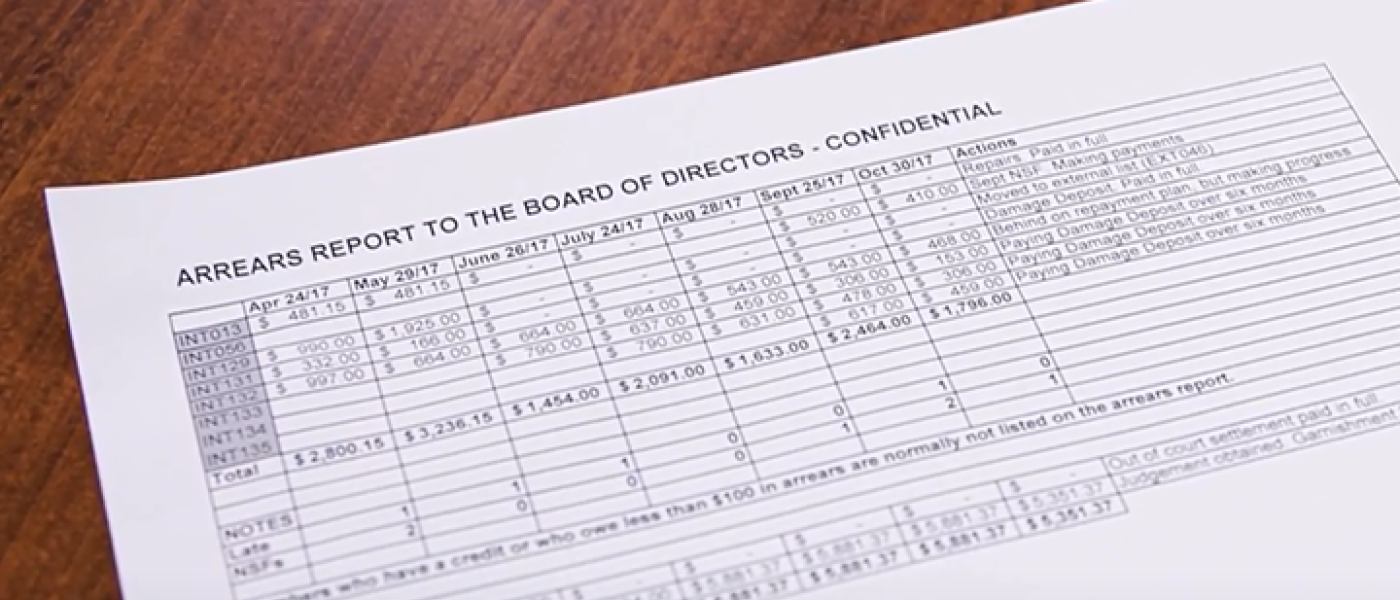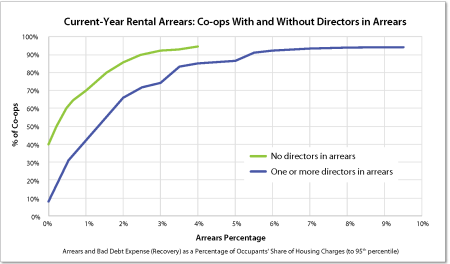
Your co-operative is in the housing business, not the lending business. It has bills to pay and a building to keep up. You should keep this in mind when members don’t pay on time.
If a household doesn’t pay what it owes and moves out, the co-operative is left with a bad debt, which will have to be covered out of the housing charges paid by other members.
Co-ops need to take quick action for non-payment. A reminder notice should go out on the second business day, and, if this and perhaps a second notice don’t get results, within a few days staff should issue a notice to appear before the board. If the member ignores this too, the board should normally proceed to eviction.
Harsh? Maybe. Hasty? No, because it takes a few months to evict a non-paying household. If the person pays, the co-op can stop the eviction proceedings at any time. If they don’t, the arrears will mount up very fast, even while the co-op is moving to evict.
Some co-ops have argued that they have a duty to help their members in their time of need. If a co-op can afford this, it can budget for a fund approved by the members to assist households at risk. Clear criteria for assistance will be needed and the board and manager should be publicly accountable to the membership for the funds spent. This approach is open and fair. Permitting a few households to run up arrears, and keeping the information secret, is not.
When the audited statements are presented at the annual meeting, no board enjoys having to answer for a large loss to bad debts or a shortfall in cash owing to growing member arrears. It’s even more embarrassing when a board member owes some of these arrears.

Data show that co-ops with directors who are behind with their charges lose more to arrears and bad debts than those whose directors pay on time. Are directors in arrears soft on members in arrears? Are they setting a bad example or just reflecting a weak co-op culture? We can’t say, but their behaviour and the co-op’s poor collection results seem to be linked.
Watch our HomeRun video on how Bread and Roses Co-operative Homes handles non-payment.